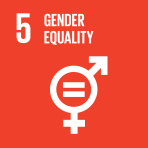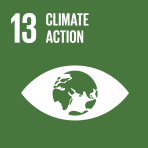Abstract
Climate change is already impacting negatively on the health and well-being of individuals across the globe, and this burden is likely to become more important and debilitating over time. Due to deep-rooted systemic inequalities, the growing negative consequences disproportionately affect diverse women, girls and lesbian, gay, bisexual, transgender and intersex (LGBTI) people. The same structural and cultural factors that render them more vulnerable also limit their meaningful participation in mitigation and adaptation planning and marginalize their needs. This policy brief argues the case that to enable gender-transformative, intersectional and rights-based approaches, climate change, gender and other social determinants of health must therefore be considered and addressed jointly where possible. A systems-based approach can improve the understanding of important synergies and co-benefits, feedback loops, trade-offs and unanticipated consequences that are critical to priority-setting and effective responses. It can also foster critically needed cross-sectoral collaboration among the policymakers and advocates who work on climate, health and gender equality.
- 18 févr. 2023




